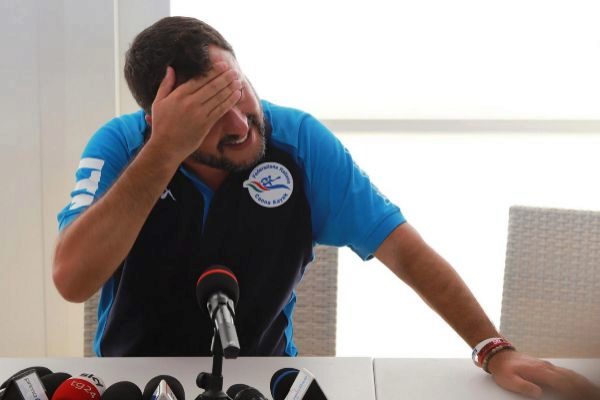- Immigration: Salvini asks the Spanish Government to take charge of Open Arms and Celaá replies that he goes "to the nearest port"
- Italy: The Five Star Movement loses the motion of confidence against its own Government
- Italy: Italian Justice confirms that Matteo Salvini League defrauded the State 49 million euros
The crisis of the transalpine government is already undeniable and inevitable. But Italy is a parliamentary republic, so there are still intermediate stages before the different scenarios that could be expected pending new general elections. For the moment, Prime Minister Giuseppe Conte has not submitted his resignation , but he will soon have to face the motion of censure that today the League has decided to present in the Senate against the president of the Italian Executive . On the other hand, being a parliamentary system, the arbitration of all phases will be in the hands of the head of state, Sergio Mattarella; the most impartial active figure within the Italian Republic. An actor, therefore, who can mark the times he considers appropriate to get out of the current political crisis.
The next 10 days will be decisive. If Giuseppe Conte lost the motion of censure against him in the Senate, he will go directly to visit the head of state, Sergio Mattarella - "will go up the Hill", as Italian journalists usually write mixing the physical and the symbolic in relation to personing in the Quirinal-; to file his resignation. Mattarella, in all likelihood, will accept them because they come from a parliamentary distrust and not simply political. It might come as a surprise that Mattarella rejected Conte's resignation so that he would continue in a government - more technical than political - that would gradually prepare the country for new elections while still fulfilling its duties in economic matters and in relation to Brussels. In this possible scenario, the head of state knows perfectly the prestige that Conte has, especially in the international arena, taking into account his difficult role as referee between Di Maio and Salvini at the domestic level.
If there is no continuity for Conte in practice, Mattarella will have to initiate a new round of consultations and verify that, indeed, there is no other possible Government. In theory there could be a new coalition between the 5 Star Movement and the Democratic Party (PD) of Nicola Zingaretti, but the historical teaching of Di Maio's against the Socialists would prevent thinking about this path , taking into account 36% of the consensus of the League according to the latest polls. If there were finally no other possible government within the same legislature, the head of state has to dissolve the transalpine Congress and Senate.
Once the Chambers dissolve, you have to go to the polls between 45 and 70 days later . The dates that are shuffled are October 20, October 27 or November 3. In the event that the consultations were on October 20, the Chamber of Deputies and the Senate would have to exhaust their mandate between August 20 and 22. For the general elections to take place on October 27, Parliament would have to be dissolved before September. If the Transalpine Courts finished the current legislature once the month of September began, the Italians would be called to vote on November 3.
What moment would a government be achieved after the voting? After 20 days after the day of the general elections , the new parliamentary chambers will be formed and a new legislature will start. From there, the newly elected would begin the election process of the presidents of both the Senate and the Chamber of Deputies, second and third most important figures of the State, respectively, below the President of the Republic, Sergio Mattarella.
Once the elections are held and the presidents of the Chambers are appointed, it will be when the head of state will begin his rounds of consultations, where Mattarella will have an important autonomy to propose the best candidate for prime minister to achieve a solid and stable majority; which does not necessarily have to coincide with the leader with more parliamentary representation. But contrary to what has happened with the last 5 Italian prime ministers - where Mario Monti, Enrico Letta, Matteo Renzi, Paolo Gentiloni and Giuseppe Conte were never presidents of the Government for having been the leaders of the most voted formation after an election - ; if everything will remain as in the polls, the leader of the League, Matteo Salvini, has everything to gain to be the next president of the Italian Government . If you were to vote between the end of October and the beginning of November, the new Transalpine Executive could be swearing before mid-December.
According to the criteria of The Trust Project
Know more
